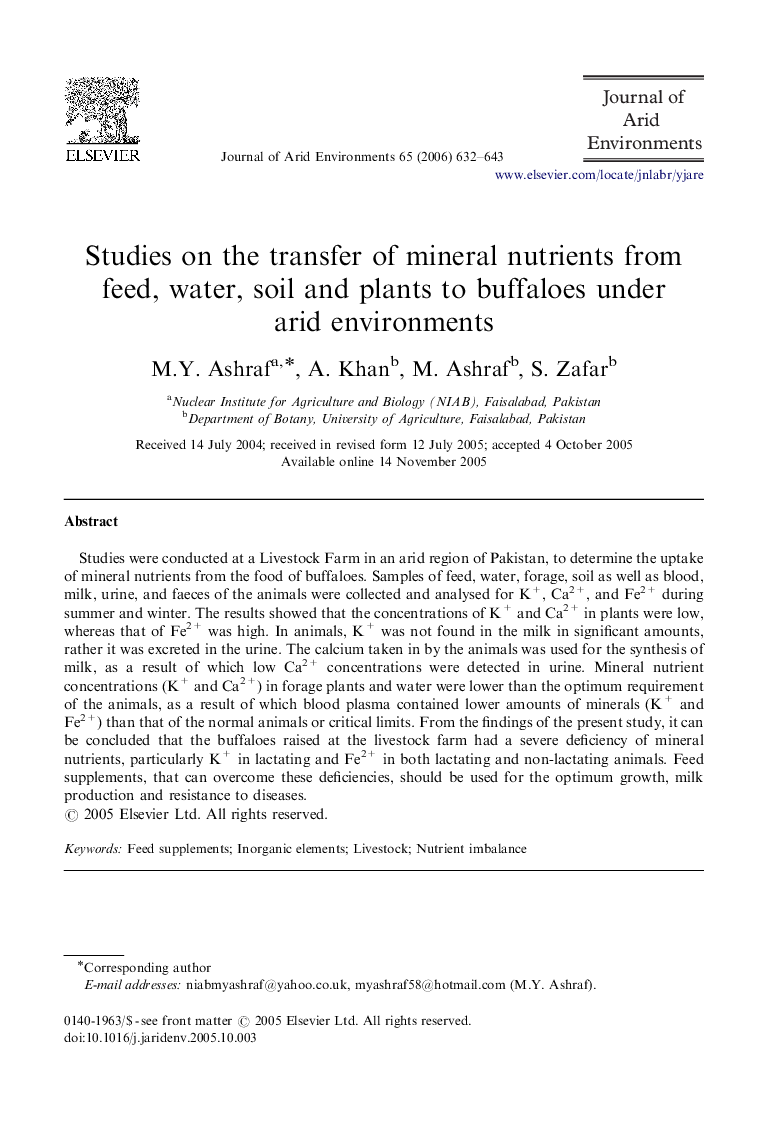| Article ID | Journal | Published Year | Pages | File Type |
|---|---|---|---|---|
| 4394634 | Journal of Arid Environments | 2006 | 12 Pages |
Abstract
Studies were conducted at a Livestock Farm in an arid region of Pakistan, to determine the uptake of mineral nutrients from the food of buffaloes. Samples of feed, water, forage, soil as well as blood, milk, urine, and faeces of the animals were collected and analysed for K+, Ca2+, and Fe2+ during summer and winter. The results showed that the concentrations of K+ and Ca2+ in plants were low, whereas that of Fe2+ was high. In animals, K+ was not found in the milk in significant amounts, rather it was excreted in the urine. The calcium taken in by the animals was used for the synthesis of milk, as a result of which low Ca2+ concentrations were detected in urine. Mineral nutrient concentrations (K+ and Ca2+) in forage plants and water were lower than the optimum requirement of the animals, as a result of which blood plasma contained lower amounts of minerals (K+ and Fe2+) than that of the normal animals or critical limits. From the findings of the present study, it can be concluded that the buffaloes raised at the livestock farm had a severe deficiency of mineral nutrients, particularly K+ in lactating and Fe2+ in both lactating and non-lactating animals. Feed supplements, that can overcome these deficiencies, should be used for the optimum growth, milk production and resistance to diseases.
Related Topics
Physical Sciences and Engineering
Earth and Planetary Sciences
Earth-Surface Processes
Authors
M.Y. Ashraf, A. Khan, M. Ashraf, S. Zafar,
